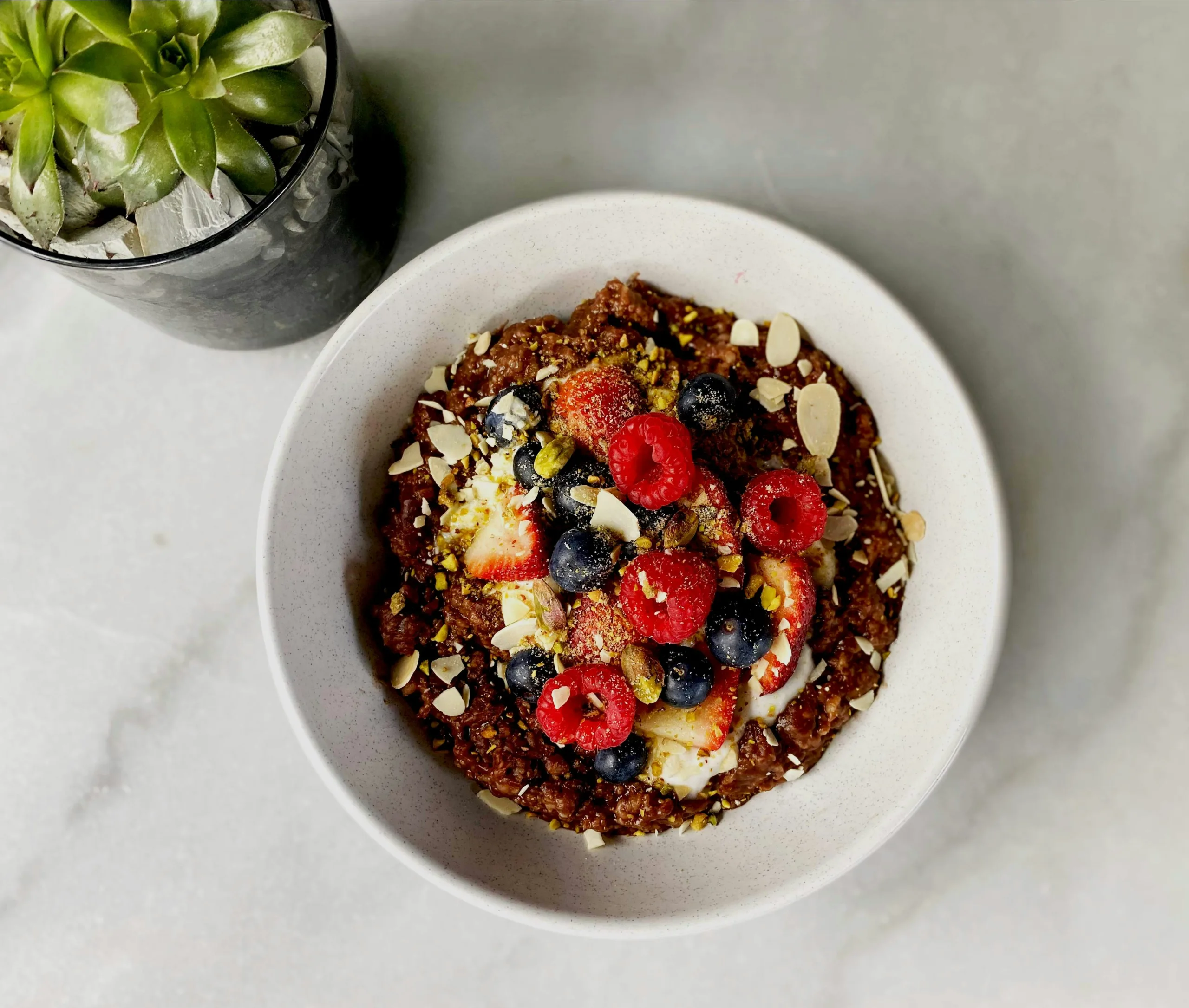You’re officially familiar with yo-yo dieting if you’ve ever said something like this more than once:
“I want to be X pounds by Christmas.”
“I want to wear my size X dress to the holiday party in 3 weeks.”
“I refuse to get rid of my smaller belts because I know they’ll fit when I get back to working out this spring.”
All of these quotes come from actual clients of Nutritious Life founder and celebrity nutritionist, Keri Glassman, MS, RD, CDN. They’re familiar, or at least very relatable, to so many of us who work hard to lose weight, only to have it creep back on (plus a few more pounds), to then again buckle down to lose again, gain again, lose again… sigh.
We can all agree this is a really frustrating cycle, and there’s no more dreaded time for this challenging head/body game than the holiday season.
And here we are, in the thick of the season, trying once again to figure out how to lose weight.
But between the lingering Halloween candy, the leftover Thanksgiving pie, and the endless Christmas cookies, you’re exhausted from the overload of constant hard choices you have to make—eat it, don’t eat it, eat just a little, skip it altogether, ok have a nibble, cut a whole piece, no wait a half piece, maybe if I eat it fast enough it won’t count, get it away from me because if I see it I’ll eat the whole thing, can I have just a taste, darn I can’t believe I ate that, ugh my pants are getting tight…
Have you ever said or thought these things? Same here.
So obviously losing and gaining weight messes with your head, but did you know that yo-yo dieting really messes with your body, too?
What Yo-Yo Dieting Does to your Body
Hormonal havoc. Extreme dieting, including severe calorie restriction and dramatic dietary changes can increase the hormone cortisol, which wreaks havoc on your health—to the tune of increasing your risk of developing certain diseases such as diabetes, heart disease and cancer. Yikes!
There is tons of evidence that people who live the longest, with the best mortality rates, are those who are constantly eating slightly less than they need to be satisfied, and who maintain a low body weight for their height.
This is, in part, due to hormonal actions being optimized. If the caloric restriction is too severe, hormones don’t work as efficiently and health is compromised. You can see this as nutrient deficiencies that pop up with symptoms such as dry skin, brittle hair and nails, and poorer immune functioning.
The bottom line is that seriously decreased caloric intake negatively affects hormones that you need for good health.
RELATED: What to Eat for Better Balanced Hormones
Metabolic meltdown. Here’s the deal: if you over-restrict your calories, your body responds by slowing down your metabolic rate, or your ability to burn calories. It also causes muscle loss.
The truth of the matter is that yo-yo dieting doesn’t appear to permanently ruin metabolism, but the process of losing muscle (which is what your body uses for fuel when there isn’t enough food calories coming in) is damaging to your wellness.
You need your lean body mass to support your bones and keep you fit, strong, and burning calories, so don’t compromise it by breaking it down to use for fuel!
A word about exercise too, here: Try reframing your view of exercise as a way to lose weight and think of it more as maintaining your lean body mass (which helps with weight loss). This will help keep your brain focused on your fitness, and feeling fit is a great motivator to say no thank you to the second helping of those not-so-healthy side dishes.
Nutritional Neglect. Extreme weight loss is hard on your vital organs, including your brain, heart, liver and kidneys. These organs need carbohydrates and calories to do their jobs. Without enough nutrition, these organs are at risk for damage.
Severely decreased calories can also lead to nutrient deficiencies, which, in prolonged states, may cause damage to bones, skin, and immune functioning.
Do yourself a favor and don’t cut out all carbs or fats. Reduce ‘em, (the “bad” ones), yes. But eliminate a whole food group entirely and you’ll end up back on that whole yo-yo dieting cycle again, guaranteed.
RELATED: Why Healthy Fats Don’t Make You Fat
How to Get Out of the Yo-Yo Dieting Cycle
Rather than dramatically reducing calories, or dropping all fats or carbohydrates, try eating a little less of everything at every meal and snack, so that you’re ‘satisfied’ rather than ‘full’ in order to get and keep a healthy weight.
Eat a balanced diet and choose clean, healthy foods. This is something Keri always stresses when she has her clients gauge their appetite using the hunger quotient (HQ). Of course, implementing all 8 pillars of living a Nutritious Life will keep you off the yo-yo cycle too.
So, to summarize: rather than binging on candy, mashed potatoes, latkes, or fruitcake through Halloween, Thanksgiving, Hanukkah, or Christmas, and then sticking to 600 calories a day for the next two weeks, choose to eat a little less all the time, and strategically place your indulgences.
This is easier said than done, but it can be done. Stay focused, consistent, and patient. Listen to your body telling you it is “slightly satisfied” and “slightly hungry”. And, plan for your indulgences.
Yo-Yos are toys for kids—they’re not how you should manage your weight. This holiday season, choose to focus on your healthiest goals and your weight will find its perfect place.
Learn More About Nutrition and Wellness
Love nutrition and wellness, and want to immerse yourself even more? Our Become a Nutrition Coach certification course gives you a solid foundation in nutrition science, plus techniques for coaching clients so you can share your knowledge and earn an income, if you choose to. (Or, you can use the information for your own health journey or to enhance a wellness business you already have.)
It’s the perfect way to inspire the next generation of healthier people all across the globe.
Request a sneak peek of the Become a Nutrition Coach program and see how you can put your passion for wellness to work.





























